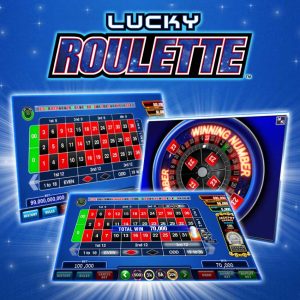Whether you’re playing in a land-based casino or spinning the reels online, the excitement of winning—or the desire to chase losses—can make it hard to walk away. However, setting limits and recognizing when to stop are crucial for keeping slot play fun and responsible.
So, when should you stop playing slot machines? Here are some helpful tips and guidelines to help you manage your time and money wisely while enjoying the thrill of the game.
Stop When You’ve Hit Your Budget Limit –
One of the most important rules of playing slots—or any form of gambling—is setting a budget before you start. Decide how much you’re willing to spend, and make sure it’s an amount you’re comfortable losing. It’s essential to view this money as the cost of entertainment, not an investment to be regained.
Budgeting Tips:
- Set a Daily or Session Limit: If you set aside $100 for a session and you lose it, walk away. Don’t dip into additional funds or credit to keep playing.
- Stick to Your Limits: The temptation to keep playing after a loss can be strong, but chasing losses often leads to bigger losses. Know when to call it quits.
- Divide Your Bankroll: If you plan on playing for several hours or sessions, divide your total bankroll into smaller amounts so you can manage your playtime better.
When you’ve hit your budget limit, stop playing. This will prevent you from spending money you can’t afford to lose and help you enjoy slots without financial stress.
Stop After a Big Win –
The excitement of hitting a big win can make it tempting to keep playing, but this can be a slippery slope. Many players fall into the trap of continuing to spin after a major win, thinking their lucky streak will continue. More often than not, though, this leads to losing back the money you just won.
Why Stop After a Big Win?
- Protect Your Winnings: Once you hit a large payout, cash out and enjoy your winnings. You don’t want to lose what you’ve gained by trying to double down on your luck.
- Feel Accomplished: It’s easy to get caught up in the excitement, but stopping after a win lets you walk away on a high note, which feels much better than walking away after losing it all.
Set a win limit before you play. For example, if you win 2-3 times your starting bankroll, cash out and celebrate your success. Knowing when to stop after a win is a powerful way to leave the casino or log off your online session with a smile.
Stop When the Fun Fades –
Slots are meant to be fun, and once that fun disappears, it’s time to stop. If you find yourself becoming frustrated, anxious, or bored, continuing to play won’t improve your experience. In fact, playing while stressed can lead to poor decisions, such as betting more than you planned or chasing losses.
Signs It’s Time to Stop:
- You’re Not Enjoying the Game: If you’re just spinning out of habit or frustration, take a break. Slots should always be enjoyable.
- You’re Feeling Stressed: If you’re worried about losing money or feeling anxious about your gameplay, it’s a good sign that it’s time to step away.
- You’re Playing to “Get Even”: If you’ve lost money and are playing just to win it back, it’s a red flag. This mindset often leads to bigger losses.
Playing slots should always be about entertainment. If the joy of the game is gone, take a step back and return when you’re in the right mindset to have fun.
Stop When You’re Losing Consistently –
One of the biggest mistakes slot players make is chasing losses. Slots are random games of chance, and there’s no way to predict or control the outcome. If you’re on a losing streak, continuing to play in hopes of winning back your money is usually a recipe for disappointment.
Why Stop During a Losing Streak?
- Minimize Losses: If you’re losing consistently, it’s better to cut your losses rather than continue to drain your bankroll.
- Avoid Emotional Decisions: When frustrated by a string of losses, you’re more likely to make rash decisions, such as increasing your bets beyond your budget or playing for longer than intended.
A good rule of thumb is to set a loss limit before you start playing. For example, decide that if you lose 50% of your bankroll, you’ll stop. Sticking to this rule will help you avoid the frustration and regret of losing more than you intended.
Stop When You’ve Played for Too Long –
Time can fly when you’re playing slots, especially when you’re enjoying the game or caught up in the action. However, spending too much time playing can be mentally and physically draining—and can lead to overspending if you’re not careful.
Tips for Managing Playtime:
- Set Time Limits: Decide in advance how long you want to play, whether it’s 30 minutes, an hour, or more. Once you hit your time limit, stop.
- Take Breaks: If you’re playing for an extended period, take breaks to stretch, hydrate, and clear your mind.
- Use a Timer: Many players use a timer or alarm to remind themselves when their session should end.
By setting time limits, you can ensure you don’t spend too long in front of the machine or screen and can keep your gaming experience balanced.
Stop If You’re Playing with Money You Can’t Afford to Lose –
Responsible gambling is all about playing within your means. If you find yourself dipping into funds meant for other essentials, like bills, rent, or savings, it’s crucial to stop immediately.
Signs You Should Stop:
- You’re Using Credit: If you’re using a credit card or borrowing money to continue playing, it’s a strong signal that it’s time to stop.
- You’re Compromising Financial Responsibilities: If you’re spending money meant for important expenses, it’s critical to step away and reassess your priorities.
Never play with money you can’t afford to lose. Gambling should never interfere with your financial well-being or obligations.
Stop When You’re Trying to Recover Losses (Chasing) –
Chasing losses is a dangerous cycle. It’s the act of continuing to play in hopes of winning back the money you’ve lost, often leading to even greater losses. If you catch yourself in this mindset, stop immediately.
Why You Shouldn’t Chase Losses:
- Slots Are Random: Each spin is independent, and the odds remain the same whether you’re on a hot streak or a cold streak. There’s no guarantee that playing longer will result in a win.
- It Can Lead to Bigger Losses: Chasing losses often results in spending more than you can afford in an effort to “break even.”
Recognize that losses are a natural part of gambling, and stop when you’ve lost an amount you’re comfortable with. Chasing losses only leads to frustration and more financial risk.
Conclusion
Know when to walk away! Playing slot machines can be a fun and exciting experience, but it’s essential to know when to stop. Setting clear boundaries for your budget, wins, losses, and time spent playing will help you enjoy slots responsibly and avoid the potential pitfalls of overspending or chasing losses.
Remember, the key to a great slot experience is not just about winning—it’s about having fun and playing within your limits. By recognizing when it’s time to walk away, you can ensure that your slot gaming remains an enjoyable and entertaining pastime.














